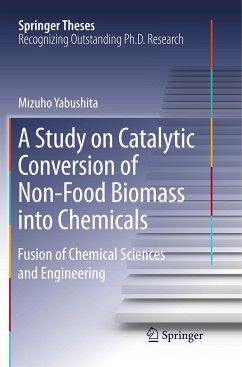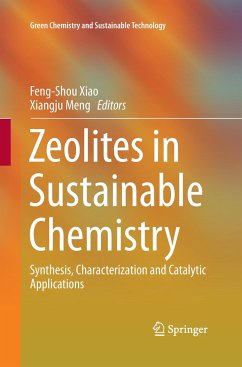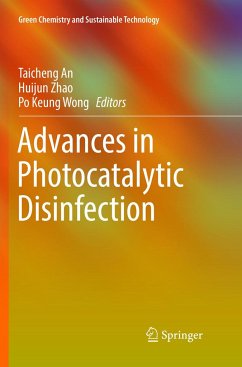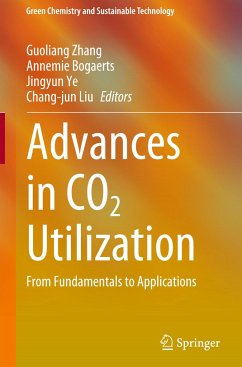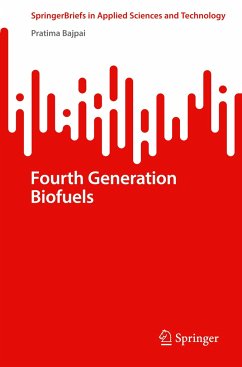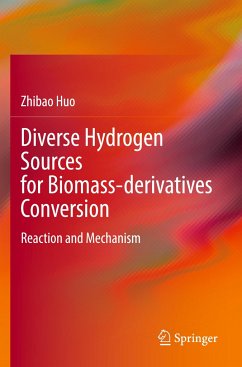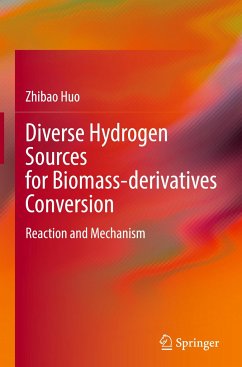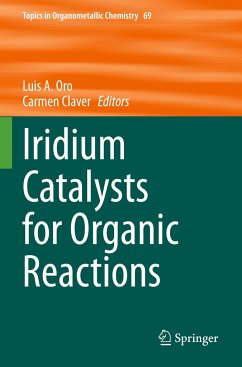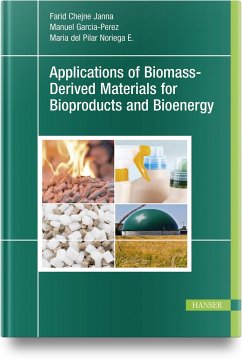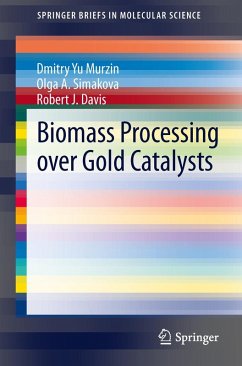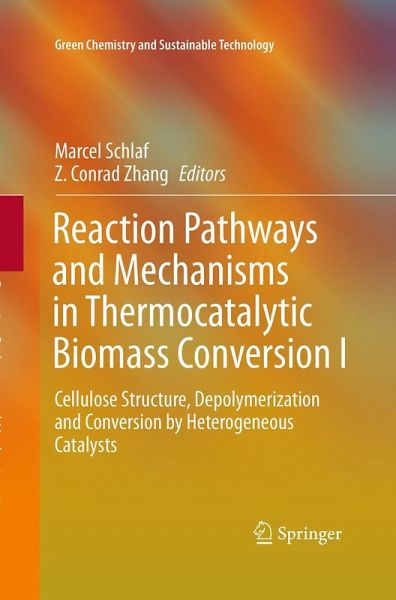
Reaction Pathways and Mechanisms in Thermocatalytic Biomass Conversion I
Cellulose Structure, Depolymerization and Conversion by Heterogeneous Catalysts
Herausgegeben: Schlaf, Marcel; Zhang, Z. Conrad
Versandkostenfrei!
Versandfertig in 6-10 Tagen
76,99 €
inkl. MwSt.

PAYBACK Punkte
38 °P sammeln!
Volume I mainly focuses on the current understanding of the reaction pathways and mechanisms involved in several important catalytic conversions of cellulose and carbohydrates. It starts with nanoscale illustrations of biomass structures and describes various reactions including cellulose depolymerization to sugars, catalytic aldose-ketose isomerization and dehydration, selective oxidation, hydrogenolysis of cellulose and sugars, and the conversion of short carbohydrates. The specificity and function of different catalysts and reaction media in relation to the catalytic performances for these ...
Volume I mainly focuses on the current understanding of the reaction pathways and mechanisms involved in several important catalytic conversions of cellulose and carbohydrates. It starts with nanoscale illustrations of biomass structures and describes various reactions including cellulose depolymerization to sugars, catalytic aldose-ketose isomerization and dehydration, selective oxidation, hydrogenolysis of cellulose and sugars, and the conversion of short carbohydrates. The specificity and function of different catalysts and reaction media in relation to the catalytic performances for these reactions are discussed with significant mechanistic details.
Marcel Schlaf, PhD, is a Professor at the Department of Chemistry, University of Guelph, Canada.
Z. Conrad Zhang, PhD, is a Professor at the Dalian Institute of Chemical Physics, Chinese Academy of Sciences, China.
Marcel Schlaf, PhD, is a Professor at the Department of Chemistry, University of Guelph, Canada.
Z. Conrad Zhang, PhD, is a Professor at the Dalian Institute of Chemical Physics, Chinese Academy of Sciences, China.





